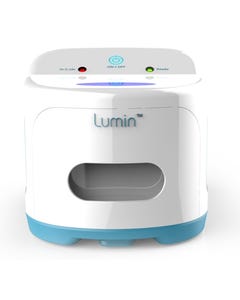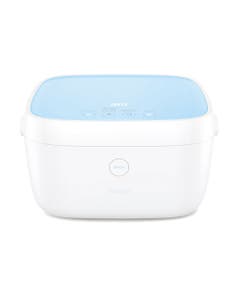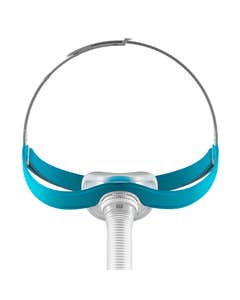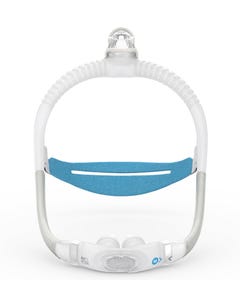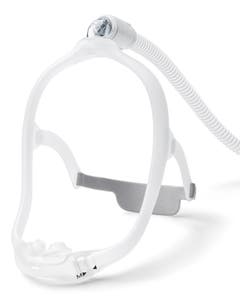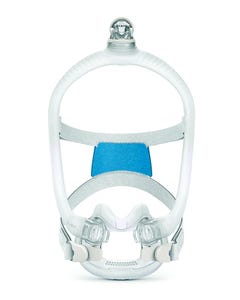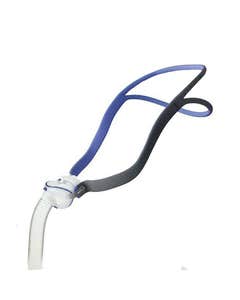How To Prevent Skin Irritation From CPAP Masks
For a lot of new CPAP users, and even long-time users, it can be common to experience things like sore spots, irritation, and even facial rash when using CPAP equipment. Luckily, there are ways to prevent these inconveniences to ensure that you get the sleep you need. Follow these tips to get the most out of your CPAP therapy and avoid red marks and irritation.
How to Treat Sore Spots and Skin Irritations from CPAP
- Slight irritation can be treated with ointment and the daily cleaning of the CPAP mask and cushion. Make a habit of cleaning your mask and cushions every single day. Mask wipes can make short work of this daily task.
- Sometimes products such as cushion liners – as an example RemZzz’s – will help alleviate any irritation. There are two kinds of mask liners; nasal liner and full-face liners, and your selection will depend on the type of mask you use. Mask liners create a barrier between the mask and your skin. They also grip the mask so that it seals and fits better.
- If the irritation is on the bridge of your nose, try a nasal gel pad on the nose bridge before putting on the mask to avoid direct contact.
- If it seems that the issue is with the mask fit, you could buy a new mask with a different fit. There are many styles of masks that are minimal in design and have few touch points with your skin. Examples include the Wisp, AirFit P10, SwiftFX, DreamWear, Brevida and Amara View are a few of the best-selling masks with a minimal profile.
- Having a clean face will ensure that the fit of the mask is at its most optimal. Be sure you cleanse your face of oil and dirt before putting on your mask. Do not use any lotion or cream on your face before you put on the mask, because it can cause your mask to slide while you sleep. Even a small amount of friction or dirt containing bacteria, sliding on the skin of your face can cause sores or irritation.
Why CPAP Causes Sore Spots and Skin Irritations?
Major CPAP mask manufacturers like ResMed, Respironics and Fisher & Paykel attempt to design every mask they produce to be comfortable. Unfortunately, because everybody’s face is different, experts at The CPAP Shop know that some people can experience skin irritation and even blisters caused by the fit their masks. A CPAP mask can cause a rash. Other conditions like CPAP acne and CPAP dermatitis are not uncommon. To complicate the mask comfort problem, even well-fitting masks can cause sore spots and skin irritation.
The cushion, which is typically made of silicon and helps seal the mask can be problematic for some people, particularly for those whose skin is more sensitive than normal.
How to Overcome Skin Irritations & Sore Spots from CPAP?
It’s important to note that if you are experiencing moderate to severe facial rash from your CPAP mask, speak to your doctor or your CPAP equipment supplier.
CPAP full face masks are often attributed to causing sores on the nose ridge of CPAP patients. Full Face mask nose sores can be from many things.
- Improperly Positioned Mask — re-position the mask and properly tighten the CPAP headgear
- Too Tight — loosen the CPAP headgear so the mask fits snuggly, but not too tight
- Wrong Mask Size — order the next size up or down and try the new mask
The goal of CPAP therapy is a good night’s sleep. If a mask is causing irritation or soreness, achieving a good night’s sleep will be difficult. Do not be afraid to ask questions or switch masks if you have sores or irritated skin. Information is key and the more informed you are about your therapy, the better off you will be.
At the end of the day, if you have a CPAP mask that’s irritating your skin or causing soreness, replacing it is now easier than ever. With so many new masks and styles available, nobody should have with a mask that is not meeting your needs.
The CPAP Shop has a full line of masks and other sleep apnea equipment from all of the most trusted manufacturers. If you have any questions about any of this equipment, don’t hesitate to call us at 866-414-9700, or you can email us at contact@thecpapshop.com.
Chris Vasta is the president of The CPAP Shop and an expert in sleep and respiratory therapy. He often provides insights on product design and functionality on various manufacturers’ prototypes.
For a lot of new CPAP users, and even long-time users, it can be common to experience things like sore spots, irritation, and even facial rash when using CPAP equipment. Luckily, there are ways to prevent these inconveniences to ensure that you get the sleep you need. Follow these tips to get the most out of your CPAP therapy and avoid red marks and irritation.
How To Prevent CPAP Mask Skin Irritation?
- Slight irritation can be treated with ointment and the daily cleaning of the CPAP mask and cushion. Make a habit of cleaning your mask and cushions every single day. Mask wipes can make short work of this daily task.
- Sometimes products such as cushion liners will help alleviate any irritation. There are two kinds of mask liners; nasal liners and full-face liners, and your selection will depend on the type of mask you use. Mask liners create a barrier between the mask and your skin. They also grip the mask so that it seals and fits better.
- If the irritation is on the bridge of your nose, try a nasal gel pad on the nose bridge before putting on the mask to avoid direct contact.
- If it seems that the issue is with the mask fit, you could buy a new mask with a different fit. Many styles of masks are minimal in design and have few touch points with your skin. Examples include the DreamWisp, AirFit P10, DreamWear, Brevida, and Amara View, which are a few of the best-selling masks with a minimal profile.
- Having a clean face will ensure that the fit of the mask is at its most optimal. Be sure you cleanse your face of oil and dirt before putting on your mask. Do not use any lotion or cream on your face before you put on the mask, because it can cause your mask to slide while you sleep. Even a small amount of friction or dirt containing bacteria, sliding on the skin of your face can cause sores or irritation.
Understanding CPAP Mask Materials
CPAP masks vary in materials so that CPAP users can find what is most comfortable for them and what works for their skin. CPAP cushions are made in the form of silicone, foam, and gel, and the varying materials can impact every unique person's skin and sensitivity. Headgear and frames also vary in material, and in some cases, have optional add-on fabric that can be wrapped around frames and headgear to make wearing your CPAP mask even more comfortable, especially around your face. Some material is even made from hypoallergenic and soft fabric so that they can be as gentle as possible on the skin. Each form of CPAP material has its pros and cons and it's really up to the CPAP patient to find what they prefer. The best way to find what works best for you is mainly by trial and error.
Proper Mask Fit and Sizing of CPAP Masks
Just as there are different materials for cushions, there are also many styles of CPAP masks available for sleep apnea patients, including full face, nasal, and nasal pillows. These masks vary in size, features, sustainability to CPAP pressures, and more. A proper CPAP mask fit is very important to overall CPAP success and comfort. If your mask is too tight, you may experience soreness and irritation on the face. If it is too loose, you may experience frequent air leaks throughout the night.
Kait, a dedicated team member at The CPAP Shop, has helped many CPAP patients find their ideal mask. Here's what she has to say about how she helps users find the right mask size and style based on their needs:
"When I have someone looking for a new mask, I usually will ask them a series of questions like what they do or do not like about their current mask, if there's anything they would change about the mask and what would it be. On top of that, I will usually also ask how they felt about their mask when they first got it, what their cleaning routine is as far as the cushion goes, and how often they are replacing their other mask components. If the cushions aren't being maintained properly, they will eventually run into leak issues no matter what mask they are choosing. Headgears need to be replaced every so often as they stretch and can cause overtightening, which leads to strap marks and even discomfort. Once I ask my questions and provide some education they will choose the masks I recommend based on their answers, but sometimes they even choose to refresh their current mask. Every situation is unique, but our 30-day mask guarantee really helps people feel safe in their choice - knowing that if it doesn't work out, they are not stuck and we can keep trying until we get it right."
Regular Cleaning and Maintenance of CPAP Masks
Proper cleaning and maintenance of CPAP equipment will prolong their lifespan and also ensure better hygiene, preventing any skin problems and irritation around the face. Cleaning your CPAP mask will remove any bacteria, dust, and oil build-up and it is recommended to clean and maintain your mask parts as follows:
- Cushion: Wash your cushion daily with mild soap and warm water. After washing with soap, rinse the cushion with water only to make sure all the soap residue is off of it. Allow your cushion to airdry before assembling it back into your mask. Additionally, to not affect the effective and strong seal of your CPAP cushion, you should replace it every 30 days or sooner if worn out or damaged.
- Headgear: Wash your headgear every week similar to how you wash your cushion. Separate it from the mask and wash it in warm, soapy water. Consider soaking it for 30-60 minutes for maximum benefits. Once washed, rinse your headgear thoroughly with water, and let air dry out of direct sunlight. Additionally, your headgear will stretch out and wear out over time so it is recommended to replace this CPAP component every 6 months.
- Frame: Wash the frame of your headgear exactly as directed above, without the need to soak it for 30-60 minutes. This part of your CPAP mask should be replaced every 3 months to ensure proper fitting and effectiveness.
The CPAP Shop offers a variety of cleaning products to help patients properly maintain their items, including the React Health Lumin CPAP Cleaner and LiViliti PAPTIZER LED Smart Sanitizer.
React Health Lumin CPAP Cleaner
The Lumin CPAP Cleaner uses UV-C light to kill 99.9% of germs and bacteria on products with a quick and efficient cleaning cycle and a one-touch operation. It cleans all types of CPAP masks, humidifier water chambers, and even household items.
Customer Reviews of the Lumin CPAP Cleaner
"I bought this cleaner because I was getting irritations on my eyelids and the back of my ears. I eventually traced it to my CPAP humidifier and face mask. I have only used it a few days, but it seems to work well and the irritations are going away. " - Review by Tom
"I really like the way this disinfects my CPAP equipment. It is fast, with no odor or respiratory irritants like other cleaners. Also great for killing germs on other things like toothbrushes and contact lens cases. Used for about a month, very happy with the purchase." - Review by John H
LiViliti PAPTIZER LED Smart Sanitizer
The LiViliti PAPTIZER LED Smart Sanitizer eliminates approximately 99.99% bacteria in only 3 minutes. It has UVC LED technology with 40 high-power LED lights to effectively clean CPAP parts and other items. Its large tray inside can clean anything that fits into it.
Customer Reviews of the LiViliti Paptizer
"Amazing size and ease of use. This product is perfect not only for CPAP, but any other device that you would want to sanitize, including those electronic devices that have batteries. Fast and efficient, and very attractive appearance in the home." - Review by Anonymous
"Works great and so simple to use. Sanitized my mask, hose, and water chamber. Best of all, no filter or cartridge to ever replace!" - Review by Martha
When to Replace Your CPAP Mask
Even the best quality masks from well-known brands will eventually wear out due to natural wear and tear. If your mask has any of the following factors, it is recommended to replace right away.
- Cracking: if you notice a small crack in your cushion, immediately replace it as the defective cushion could hinder your overall CPAP success.
- Dryness: if you wake up and your throat, nose, and/or mouth are feeling dry, that's an indication it's time to replace your mask.
- A cushion that’s worn out: a cushion that is used for more than the recommended amount of time will become worn out, and could cause problems with your therapy.
- Stiffness: stiffness can cause discomfort while sleeping at night. Try using a new cushion to see if it helps.
- Leaking: your mask could be leaking due to several different reasons. Immediately replace it to get the most out of treatment.
- Discoloration: discoloration can occur due to the natural oils and build-up coming from your skin. If you notice any discoloration on your mask, replace it with a new one.
Why CPAP Causes Sore Spots and Skin Irritations
Major CPAP mask manufacturers like ResMed, Respironics, and Fisher & Paykel attempt to design every mask they produce to be comfortable. Unfortunately, because everybody’s face is different, experts at The CPAP Shop know that some people can experience skin irritation and even blisters caused by the fit of their masks. A CPAP mask can cause a rash. Other conditions like CPAP acne and CPAP dermatitis are not uncommon. To complicate the mask comfort problem, even well-fitting masks can cause sore spots and skin irritation.
The cushion, which is typically made of silicon and helps seal the mask can be problematic for some people, particularly for those whose skin is more sensitive than normal.
Full Face CPAP Mask Irritation - Cause
- Since CPAP cushions are mainly of silicone material for added comfort, they can cause sensitivity to those who have a silicone allergy.
- Due to natural wear and tear, CPAP cushions will break down over time and can cause discomfort on the skin.
- If you do not wash your CPAP mask and cushion on a frequent basis, it will be dirty and cause irritation.
- Your CPAP mask might be too tight on your face, adding too much pressure around the sensitive parts of your face.
- If you have oily skin, the oils from your skin may not allow your CPAP mask to sit properly in place.
- If you use a CPAP humidifier, moisture may collect in your tube causing your face to get wet.
CPAP Nasal Pillow Irritation - Cause
- Your nasal pillows could be the wrong size.
- You could be placing the nasal pillows too far in your nose.
- The air passing through your CPAP tubing might be too dry.
How to Get Rid of CPAP Rash
If you are experiencing a rash from your CPAP products, do not give up! It may take some time for your skin to adjust to your new normal. If the rashes persist, we recommend trying out different masks to help you achieve the most comfort.
How to Prevent Sores from CPAP Masks
It’s important to note that if you are experiencing moderate to severe facial rash from your CPAP mask, speak to your doctor or your CPAP equipment supplier.
CPAP full face masks are often attributed to causing sores on the nose ridge of CPAP patients. Full Face mask nose sores can be from many things.
- Improperly Positioned Mask — re-position the mask and properly tighten the CPAP headgear
- Too Tight — loosen the CPAP headgear so the mask fits snuggly, but not too tight
- Wrong Mask Size — order the next size up or down and try the new mask
The goal of CPAP therapy is a good night’s sleep. If a mask is causing irritation or soreness, achieving a good night’s sleep will be difficult. Do not be afraid to ask questions or switch masks if you have sores or irritated skin. Information is key and the more informed you are about your therapy, the better off you will be.
At the end of the day, if you have a CPAP mask that’s irritating your skin or causing soreness, replacing it is now easier than ever. With so many new masks and styles available, nobody should have a mask that does not meet your needs.
The CPAP Shop has a full line of masks and other sleep apnea equipment from all of the most trusted manufacturers. To help you find your perfect mask, try out AR MaskFit, a 3D face scanning capability from the comfort of your own home. Based on your face shape and size and other preferences, this advanced technology selects the best CPAP masks for you. Give it a try today!
If you have any questions about any of our products, don’t hesitate to call us at 866-414-9700.




